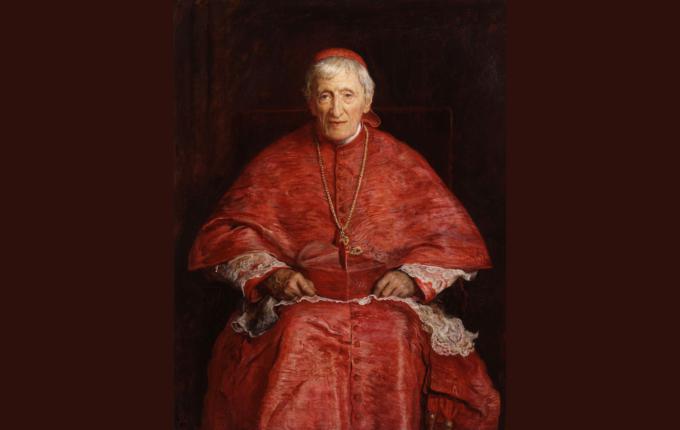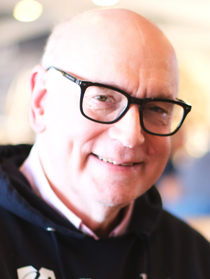
Culture
'I have no tendency to be a saint -- it is a sad thing to say. Saints are not literary men, they do not love the classics, they do not write Tales.'

Duncan
On Sunday, Oct. 13, Pope Francis will canonize Blessed John Henry Cardinal Newman (1801-1890) in Rome. This 19th-century English convert to Catholicism was a brilliant mind, a literary genius possessed of an incomparable gift for satire, a pathbreaking theologian, educator and leader of souls, a great preacher, and now, to top it all off, a saint.
With disarming humility, he had written: "I may have a high view of many things but it is a consequence of education and of a peculiar cast of intellect -- but this is very different from being what I admire. I have no tendency to be a saint -- it is a sad thing to say. Saints are not literary men, they do not love the classics, they do not write Tales. I may be well enough in my way, but it is not the 'high line.' People ought to feel this, most people do. But those who are at a distance have fee-fa-fum notions about one. It is enough for me to black the saints' shoes -- if St. Philip (Neri, his spiritual father) uses blacking, in heaven."
As Ian Ker notes in his definitive biography "John Henry Newman," published in 2009 by Oxford University Press, "Years later he remarked to a nun, 'I always feel like a hypocrite who can be detected by holy eyes, just as an accomplished thief ... is at once recognized by a police officer. But at a distance I look like a great man, without any hang dog look which I can't throw off, do what I will, when I am in places where brass will not go for gold.'"
His tombstone was inscribed with the words, "Ex umbris et imaginibus in veritatem," "Out of shadows and images into the truth." He has truly become what he aspired to be while alive. In 1842, he had written, "I am not venerable, and nothing can make me so. I am what I am. I am very much like other people, and I do not think it necessary to abstain from the feelings and thoughts ... which other people have. I cannot speak words of wisdom; to some it comes naturally. No one ever treats me with deference and respect who knows me -- and from my heart I trust and pray that no one ever may. I never have been in office or station; people have never bowed to me -- and I could not endure it."
But, years ago, the Church declared him venerable, because he lived all the virtues to a heroic degree. Two miracles that occurred through his intercession have been approved, one for his beatification, the cure of a local lawyer from Pembroke, Jack Sullivan, who became a permanent deacon, and another for his canonization. Truly out of unreality into reality.
I am currently rereading with some friends his literary masterpiece, "Lectures on the Present Position of Catholics in England" (1851), a satirical examination of English prejudice against Catholics which he considered his best-written work. Written shortly after his becoming a Catholic priest, it is a biting and hilarious examination of anti-Catholic bias. It's still relevant in our current cultural context.
There's also his spiritual memoir and autobiography, "Apologia Pro Vita Sua" (1864), a work written to defend his truthfulness and sincerity, another masterpiece that has been compared to St. Augustine's "Confessions." So many great works! When he converted to Catholicism in 1845, he wrote his "Essay on the Development of Christian Doctrine," a pathbreaking exploration of the development of Christian teaching over time. "Grammar of Assent" (1870) explored the justification of religious belief. There are also his "Parochial and Plain Sermons," preached at St. Mary's at Oxford while he was an Anglican, and his "Sermons Preached on Various Occasions" as a Catholic. He wrote "Idea of a University," a kind of charter for religious higher education.
He is often considered the father of the Second Vatican Council because of his many forward-looking yet faithful and profound ideas. Can his being declared a Doctor of the Church be far behind his canonization? One can only hope.
- Dwight G. Duncan is professor at UMass School of Law Dartmouth. He holds degrees in both civil and canon law.
Recent articles in the Culture & Events section
-
'Dignitas' and the mediaRussell Shaw
-
Scripture Reflection for April 14, 2024, Third Sunday of EasterDeacon Greg Kandra
-
St. Helena's House is established in the South EndThomas Lester
-
Is this synodality?Russell Shaw
-
Poking the hornet's nest of IVFFather Tadeusz Pacholczyk


















